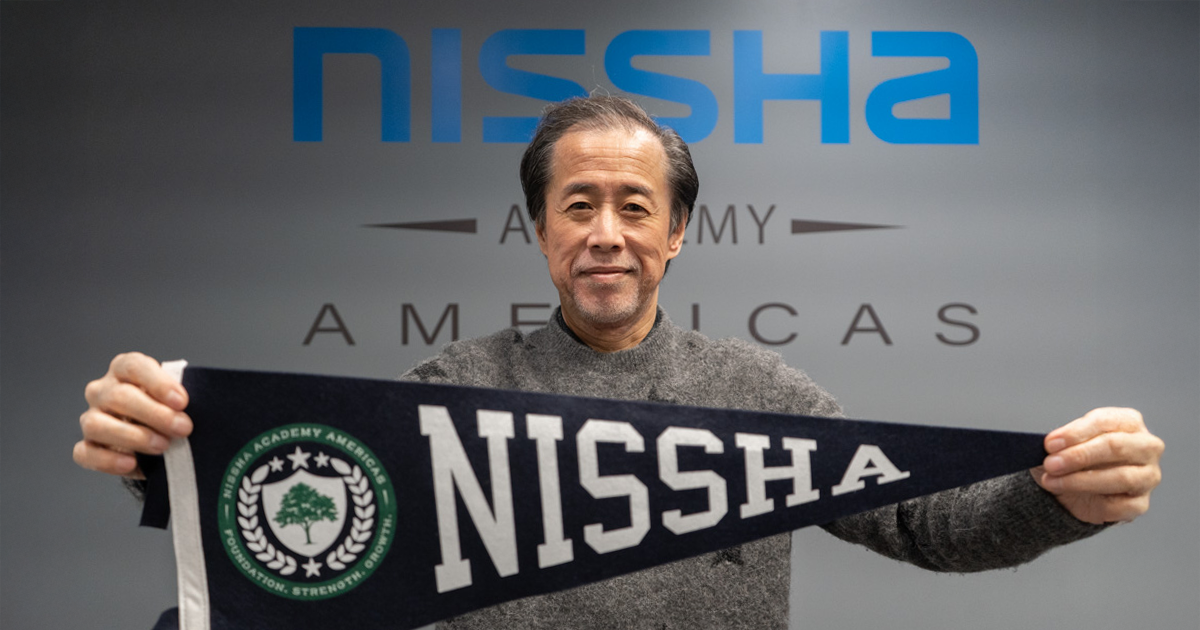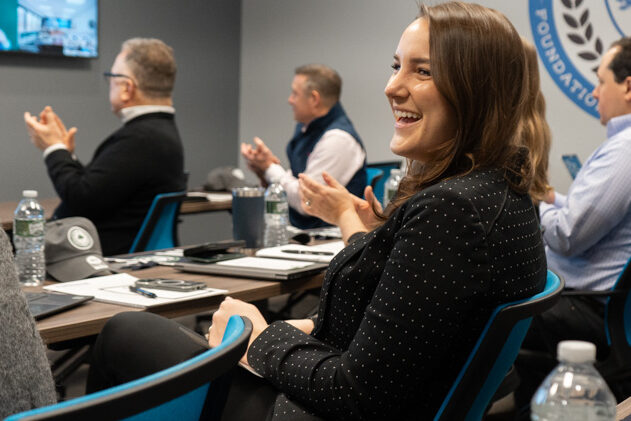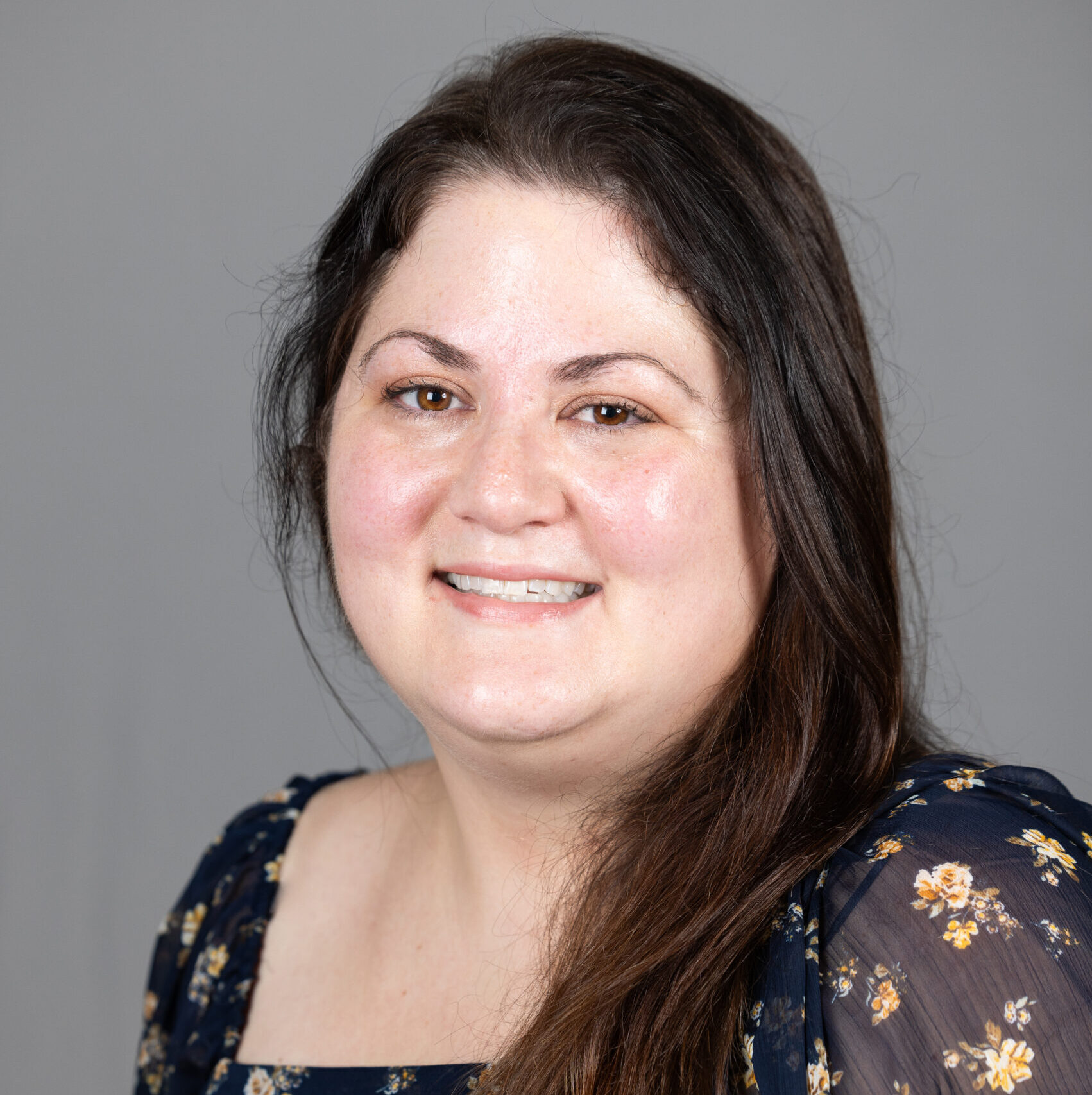How One Company Invested in Its Employees’ Professional Development

At Nissha Medical Technologies (NMT) headquarters in Buffalo, N.Y., a conference room has gone through a transformation. Equipped with modern learning technology, long rolling desks, and a lectern, it looks more like a Babson College classroom than its original use as a standard meeting room.
That’s because, right now, it is a Babson classroom. In January 2025, Nissha launched its Nissha Academy Americas Leadership Development Program, a collaboration with Babson Executive Education. This is a global program touching Nissha sites around the world.

“People are excited about having the chance to go to the academy and take the class,”says Sam Heleba MBA’89, Nissha’s president and CEO. “The ambience of the room contributes to people feeling really good about this.”
This customized academy program, with in-person and virtual sessions, touches on financial and managerial topics such as negotiations as well as general skills such as public speaking and leadership. It’s also one of the many ways the company invests in its employees and their professional growth.
You can’t tell the Nissha story without its employees. If you spend time on the Nissha social media feeds, with a collection of employee anniversary, thought leadership, and general celebrations posts, you can see their employees are just as important to their brand as the products.
“I look at it two ways: We are bettering our people to help us grow and help us be better as a company,” Heleba says of the Babson program, “but it’s also an opportunity we can give people who already go above and beyond to learn more on the job.”
As the first cohort finishes its work, this symbiotic relationship continues to grow. For companies looking to invest in their employees’ professional development, here are three benefits of a custom program from Nissha’s experiences.
1. Growing Their Confidence

The Nissha Academy program with Babson brings together employees from across roles and disciplines, including engineering, sales, marketing, finance, and IT. Co-workers learn from each other, while seizing professional opportunities they may not get in their current jobs.
“People may not have had an opportunity to do public speaking or engage in a large group before, but this gives them that opportunity along with building their confidence as well,” Heleba says. “The curriculum touches on a lot of things. There’s no one in there that’s an expert on everything, so it’s a learning opportunity for each student.”
Bringing this type of program in-house also helps with succession planning, hiring, and employee retention. As roles open up, this program can help employees fill in resume gaps and move up the organization chart. If employees feel valued and prepared, they are going to want to stay, too.
“We’ve established a certain culture where we constantly recognize the employees, we applaud entrepreneurship, and even though we continue to grow as a company, we’re trying to retain that personal, small-company feel,” Heleba adds.
2. Get Immediate Results

Heleba describes the program as “better than an MBA in some ways,” because lessons can instantly be transferred to Nissha’s day-to-day operations. While employees are immersed in their jobs, they are simultaneously learning from Babson professors, peers, and senior managers just down the hall. Heleba says the palpable results are instant.
“The number one outcome is collaboration,” he says. “Number two is they are learning about other aspects of business, how those aspects influence their jobs, and how they may influence other operations or service areas in our business.”
It comes back to growing employee confidence. Taking courses such as finance and exploring Entrepreneurial Thought & Action® in a Nissha-specific setting enhances the role within the organization.
“People from finance may not understand sales or marketing, or maybe they’ve never been in a situation where they must negotiate a contract or lease,” Heleba says. “There’s now a good cross-fertilization of people working together.”
“We’re actually investing in our people all over the world, and they recognize that investment. I’m not sure if too many companies do this.” Sam Heleba MBA’89, Nissha Medical Technologies president and CEO
3. Stand Out from Other Companies
As NMT, whose parent company Nissha is headquartered in Kyoto, Japan, grows globally, it is always looking for ways to bring its global cohorts together. NMT has 1,500 employees across its footprint.
Heleba sees the Nissha Academy and its work with Babson as a strength it can make even stronger. Next steps include finding ways to bring in more employees across the globe and adapting the curriculum. This academic program will evolve as the company evolves.
As they continue to tell their story, their employees will remain at the forefront. While other companies offer benefits such as tuition reimbursement, Heleba is proud to offer something that brings more people into the mix.
“We’re not just saying we behave this way,” Heleba says. “We’re actually investing in our people all over the world, and they recognize that investment. I’m not sure if too many companies do this.”
(Photos courtesy of Nissha Medical Technologies)
Posted in Entrepreneurial Leadership, Outcomes




